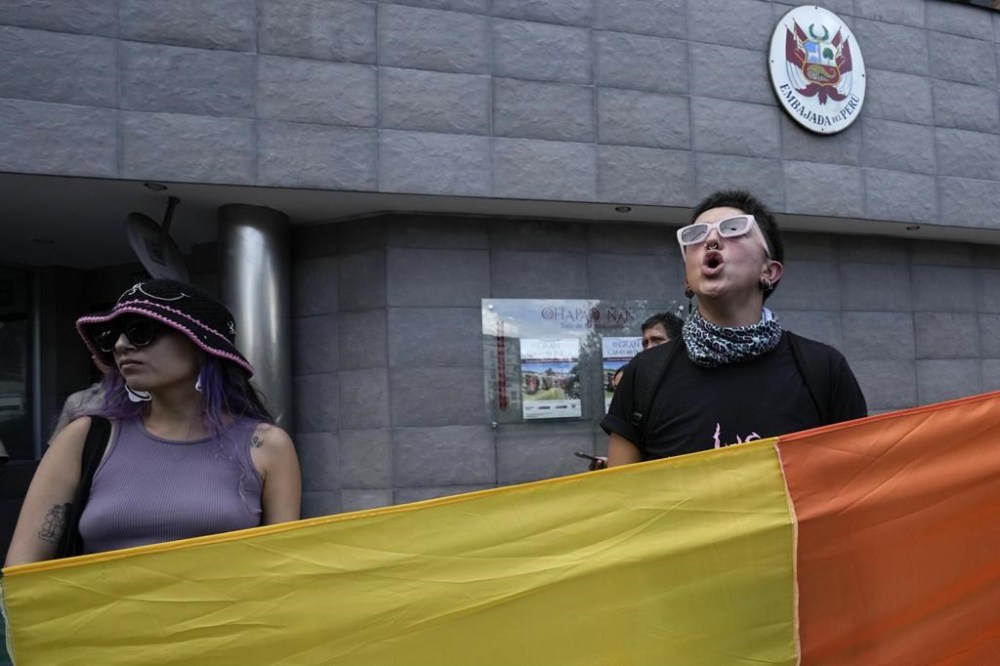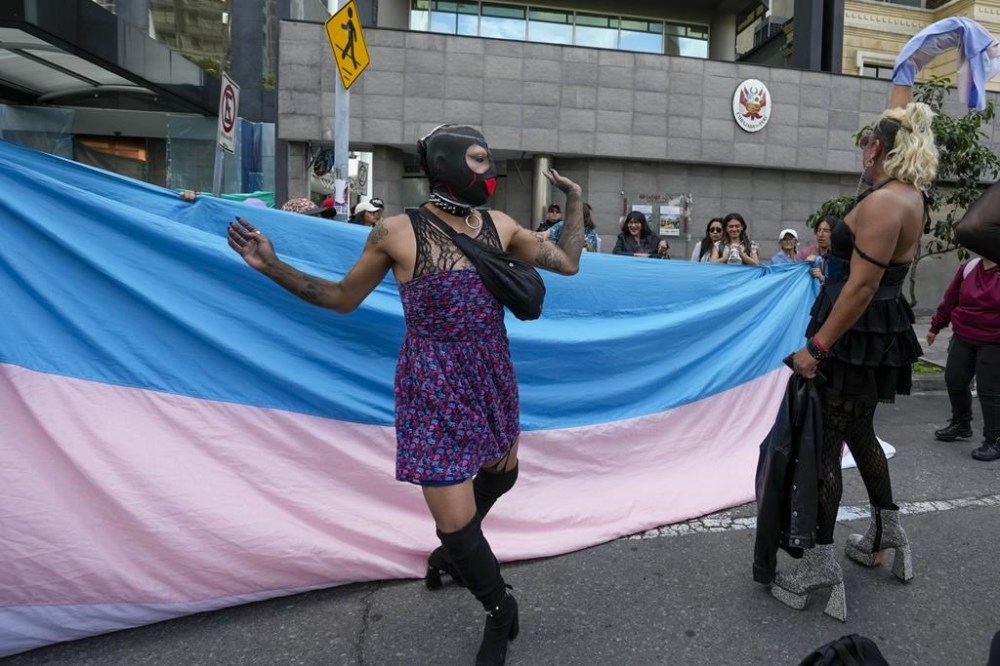Protesters rally in Peru against decree classifying seven gender identities as “mental illness”
Advertisement
Read this article for free:
or
Already have an account? Log in here »
To continue reading, please subscribe:
Monthly Digital Subscription
$0 for the first 4 weeks*
- Enjoy unlimited reading on winnipegfreepress.com
- Read the E-Edition, our digital replica newspaper
- Access News Break, our award-winning app
- Play interactive puzzles
*No charge for 4 weeks then price increases to the regular rate of $19.00 plus GST every four weeks. Offer available to new and qualified returning subscribers only. Cancel any time.
Monthly Digital Subscription
$4.75/week*
- Enjoy unlimited reading on winnipegfreepress.com
- Read the E-Edition, our digital replica newspaper
- Access News Break, our award-winning app
- Play interactive puzzles
*Billed as $19 plus GST every four weeks. Cancel any time.
To continue reading, please subscribe:
Add Free Press access to your Brandon Sun subscription for only an additional
$1 for the first 4 weeks*
*Your next subscription payment will increase by $1.00 and you will be charged $16.99 plus GST for four weeks. After four weeks, your payment will increase to $23.99 plus GST every four weeks.
Read unlimited articles for free today:
or
Already have an account? Log in here »
Hey there, time traveller!
This article was published 17/05/2024 (572 days ago), so information in it may no longer be current.
LIMA, Peru (AP) — Sexual diversity activists protested in Peru’s capital in front of the health ministry Friday to demand that the government repeal a decree that characterizes seven gender identities, including transgenderism, as “mental illnesses.”
Protesters also gathered outside the Peruvian Embassy in Ecuador’s capital, Quito.
The demonstrations coincided with the International Day Against Homophobia, celebrated since 2005 to mark May 17, 1990, when homosexuality — then considered a mental illness — was removed from the World Health Organization’s International Classification of Diseases.

In Lima, hundreds protested last week’s decree by President Dina Boluarte’s administration. The Ministry of Health said the action would guarantee “comprehensive mental health care coverage” to those affiliated with public, private or mixed health plans.
Peru does not recognize same-sex marriage.
Demonstrators carried signs with a variety of messages, among them “My life is freedom, not a disorder,” “Health is not legislated in the past,” “The disease is you, transphobia kills” and “No diversity with Dina.”
Several people beat on drums and others chanted, “Trans people are love.”
“We have had conservative governments for many years. We had military governments, then right-wing governments linked to Catholic and evangelical churches, so the position regarding us they have revived again,” said Gia Cruzado, a transgender woman and writer.
“The decree is a step backwards and is a way to continue closing the doors to progress for our community,” Cruzado said.

Gahela Cari, a transgender woman who unsuccessfully ran for congress in 2021, said that “being gay, lesbian, non-binary or bisexual is not a disease, it is a human condition.”
In Ecuador, dozens of members of a collective defending the rights of the LGTBQ+ community marched to Peru’s embassy. They staged a sit-in outside while waving flags and signed declaring that “being trans is not a disease.”


